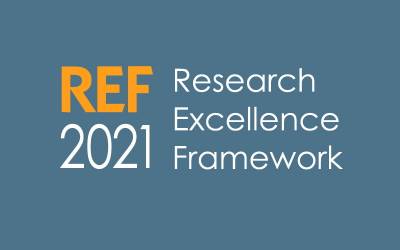The Research Excellence Framework (REF) is the system for assessing the quality of research in UK higher education institutions (HEIs).
The REF is carried out approximately every six to seven years to assess the quality of research across 157 UK universities and to share how this research benefits society both in the UK and globally. It is implemented by Research England, part of UK Research and Innovation.
Submissions for REF 2021 closed on 31 March 2021 and the results were announced on 12 May 2022. See the REF 2021 results and visit the REF Hub to read over 170 impact case studies about how UCL is transforming lives.
The previous REF was REF 2014. The next REF will be REF 2029, with results published in December 2029.
For queries, contact the UCL REF team.
Purpose of the Framework
The main objectives of the REF are:
- To provide accountability for public investment in research
- To provide benchmarking information for use within the Higher Education sector and for public information.
- To inform the selective allocation of quality-related (QR) funding for research
The REF assesses three distinct elements:
- quality of research outputs
- impact of research beyond academia
- the environment that supports research.
Assessment details and process
The REF is a process of expert review, with discipline-based expert panels assessing submissions made by HEIs in 34 Units of Assessment (UOAs). Additional measures, including specific advisory panels, were introduced in REF2021 to support the implementation of equality and diversity, and submission and review of interdisciplinary research, during assessment. The main panels were as follows:
- Panel A: Medicine, health and life sciences
- Panel B: Physical sciences, engineering and mathematics
- Panel C: Social sciences
- Panel D: Arts and humanities
The REF submission comprises three elements: research outputs, research impact and research environment. Sub-panels for each unit of assessment use their expertise to grade each element of the submission from 4 stars (outstanding work) through to 1 star (with an unclassified grade awarded if the work falls below the standard expected or is deemed not to meet the definition of research). The scores are weighted 60% (outputs), 25% (impact) and 15% (environment).
 Close
Close


